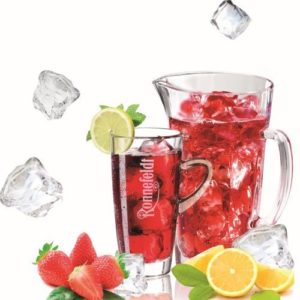Souad Jallad, marketing manager, 4 Corners reveals the company’s new partnership with Ronnefeldt Tea Company

Please describe your latest partnership?
We have recently partnered with Ronnefeldt, one of Europe’s oldest tea companies and exclusive supplier to top-class hotels, restaurants and catering business. Ronnefeldt tea range includes LeafCup®, Tea-Caddy® and Teavelope® as well as the finest loose leaf teas from the best gardens of the origin countries.
What is your core business concept and product range?
At 4 Corners we believe in a corporate governance that puts sustainability at the forefront of our business, and we always seek smart ways to reduce supply chain waste and carbon impact through our one-stop-shop strategy, which has proven to be operationally efficient, cost-effective, and paperless. Our customers can simply place one order and receive one delivery for all of their products (frozen, chilled, and ambient) through our multi-temperature fleet of vehicles. We also represent our own label range of products, where the specifications can be tailored to customers’ stringent requirements.
Have you expanded the company?
Last month, we celebrated our one-year anniversary in the new head office and distribution centre in Dubai Investment Park 2. We have built our state of the art eco-friendly warehousing system where we have introduced mobile racking. The physical plot size of the building is 40,000ft2 but it houses a capacity of 80,000ft2. Using this clever technology, we have been able to house the same volume of operation using 50% less energy and producing 50% less carbon emissions. The warehouse incorporates frozen, ambient and chilled food storage, enabling us to offer all of our customer a one-stop-shop solution.
How popular is tea in the Middle East?
Tea is still the second most consumed beverage in the world, second only to water. The Middle East especially has some of the highest per capita tea consumption in the world.
What are the main sourcing challenges in the Middle East for tea?
The challenges associated with sourcing tea are related to quality. Since tea is a natural product, changes in quality can occur due to different weather conditions each year and seasons, yet the customer demands the same aroma every time.
What tea trends are you seeing emerge globally?
The trend is going toward organic and healthy teas and infusions. Herbal and fruit infusions, with caffeine free properties and health benefits along with a great taste are definitely top of the list.
Are there any precautions required when handling tea?
Obviously the heat in this region is one of the biggest threats. Storing tea in a dark cool place, away from any other aromas, preferably in some kind of sealed container is really all you need to do to protect your tea. In general tea has a three-year lifespan, but it will lose its aroma the longer it is stored. White tea, especially, will be best when it is fresh.
How much creativity does tea as an ingredient allow?
Tea is a 5,000-year-old product and well known in all cultures around the world, with every culture having come up with its own way of preparing and consuming tea. I don’t know any product that is more versatile. You can create different varieties with the same tea simply by altering water temperature, the amount of tea used, brewing time and condiments.


































































